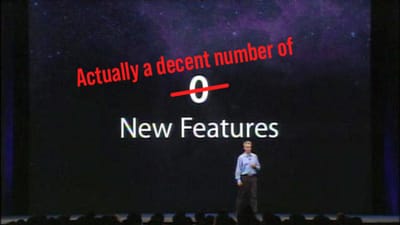The un-sexy aspects of “professional” tools
The word “pro” gets appended to a lot of products, and that tends to simply mean some combination of more features and better build quality. But I think there are (at least) 3 aspects to products, both hardware and software, that make them good professional tools.
- Reliability
- Predictability
- Flexibility
Professional tools must be reliable. When I press record on my camera, it needs to work 100% of the time. My apps cannot crash. When I have a shared document with others, sync must be perfect. When I mention someone in a Confluence or Notion doc, they must get that notification. Hardware must be properly rugged so I can treat it like a tool and not like a precious object I must protect.
Predictability is key as well, especially when it comes to software. Once a tool is a part of my workflow, any change to that tool generates friction. Forced UI updates are frustrating, and are doubly so when they’re unannounced before they happen. Software can and should evolve and improve, but they should be done cautiously, and whenever possible, give the user the option to opt into the new UI when they’re ready. For hardware, it’s more about reliability, but there’s also a case to be made for compatibility across generations so you can upgrade parts of your setup without replacing everything.
And we have to wrap it up with flexibility. Professional tools should give me the freedom to build the workflows that work best for me. For hardware, this means giving me as many ways to connect and integrate with other devices I’m using. On the software front, it means letting me tweak the details and connect to other services. Ideally, you have an API I can integrate with to do anything you don’t officially support, and my data is portable, so I am not locked into your system.
This isn’t an exhaustive list, but I think that these are some of the aspects of tooling that let professionals get their work done best. Notice I never mentioned pricing or build quality — these can be nice to haves, and they can differentiate otherwise similar offerings, but I think they’re smaller parts of the puzzle.


